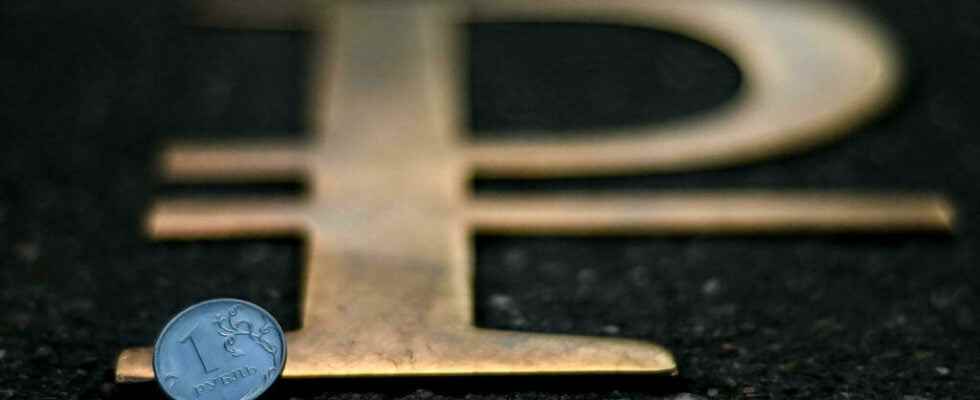The noise of boots at the borders of Ukraine is beginning to seriously worry finance. This atmosphere is also reflected in the course of the Russian national currency. Stable until December, the ruble began to fall slightly in January. But this Monday, January 24, the Russian Central Bank had to intervene to stop its fall.
With our correspondent in Moscow, Anissa El Jabri
Stock indices and the foreign exchange market are now weighed down by uncertainty surrounding a possible war in Ukraine and threats from the West to sanction Russia in a particularly painful way. The ruble also suffers.
The press release arrived at midday: from 3 p.m., the Central Bank will stop buying currencies on the domestic market. The exchange rate at that time was close to 90 rubles for one euro, its lowest level for 14 months.
The main index of the Moscow Stock Exchange also plunged: -10%. Even the gas giant Gazprom has lost value. Unblinking reaction from Kremlin spokesman Dmitry Peskov:
It is wrong to talk about Russian markets as if they were outside international markets. All markets are in a phase of deep pessimism. But after such periods of fall always come periods of growth. The sooner our adversaries cease their defiant hysterical actions, the sooner this pessimistic mood will change.
In the event of a military escalation, the ruble could fall further: 20% on average, experts say. Russia does have large financial reserves to withstand the shock, but the devaluation of the national currency is already weighing on purchasing power, which has been badly damaged by inflation which now stands at 8% on an annual basis.
►Read also: On Ukraine, Washington dramatizes, the Europeans moderate the tone, Paris proposes a meeting
